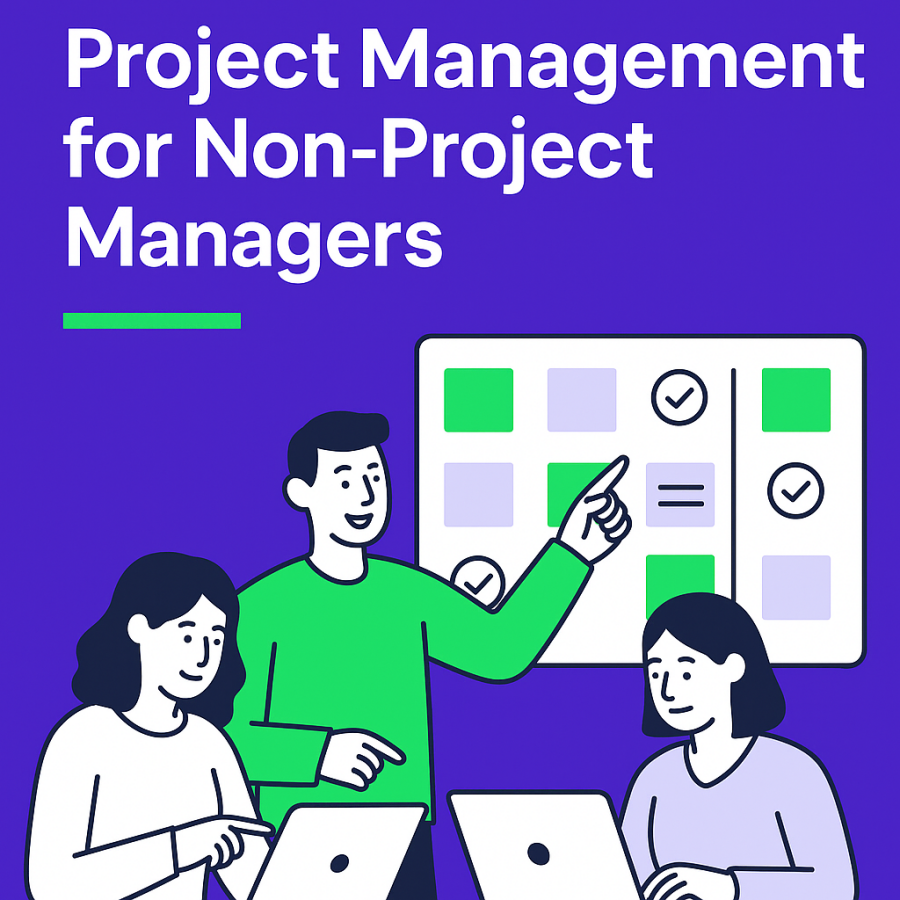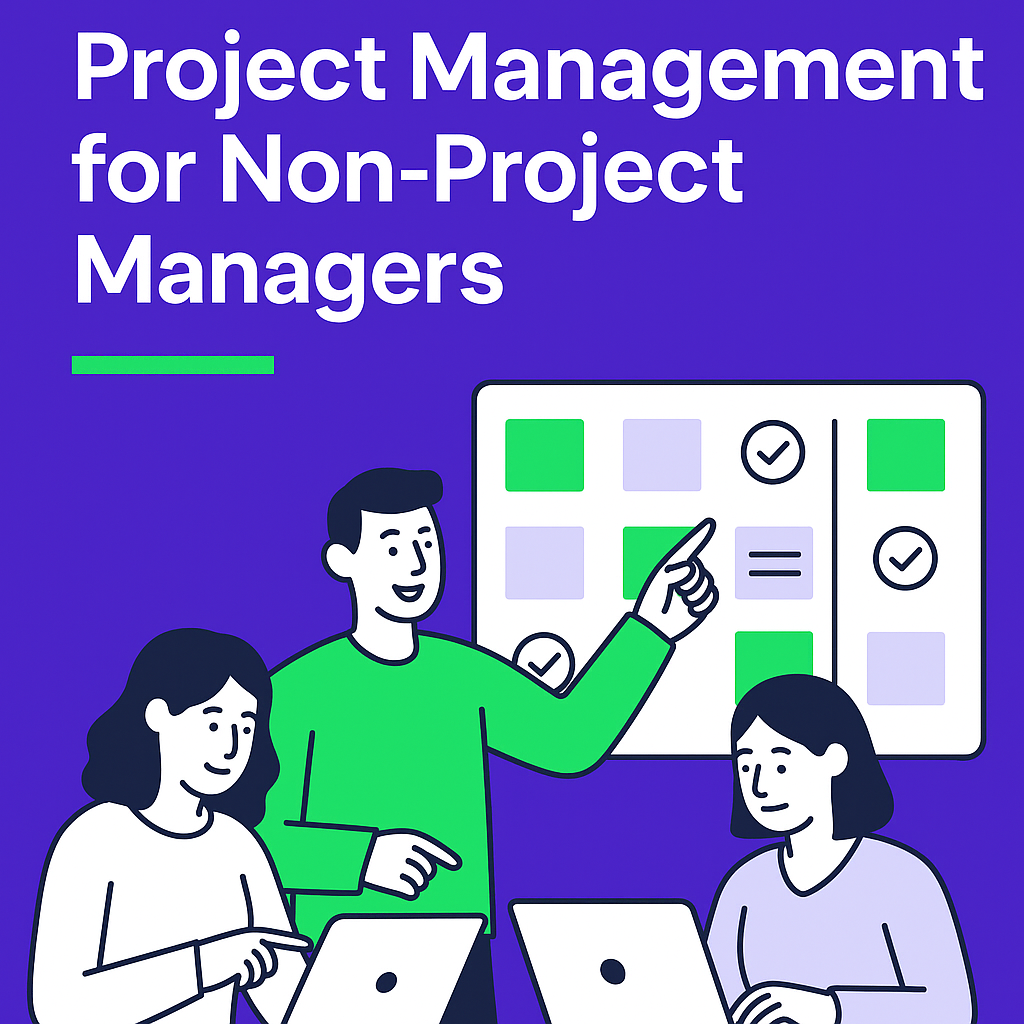A New Paradigm in Collaborative Work
In today’s interdisciplinary and digital-first environment, the boundaries between roles are rapidly blurring. Non-project managers—those without formal project management training—are increasingly required to plan, organize, and execute complex tasks within their domains. This article explores the emergence of simplified project management methodologies and tools designed for such individuals. It highlights the advantages, challenges, and academic implications of this shift, while critically evaluating the capabilities of tools like Artavolo, which champion context-driven and intuitive project workflows. This transition represents not only a technological evolution, but a pedagogical and organizational one that warrants deeper understanding within academic and professional circles.
1. Introduction: The Rise of the Citizen Project Manager
Project management has long been institutionalized as a formal discipline, with roots in military logistics, engineering, and software development. Traditional approaches emphasize structured methodologies such as the Waterfall model, PRINCE2, or PMI’s PMBOK framework (Kerzner, 2022). However, the last decade has witnessed a significant shift: professionals across marketing, design, product development, research, and even administration are now managing projects without formal training or certifications.
This emergence of the citizen project manager or accidental project manager (McConnell, 2018) is more than a trend—it is a response to decentralization, democratized digital tools, and cross-functional team dynamics. As the world moves toward flatter organizational structures and asynchronous workflows, the responsibility for delivering results has become distributed.
2. Historical Context: From Gantt to Grid
The evolution of project management mirrors the transformation of organizational theory. Early models prioritized hierarchy and control—manifested in tools like Gantt charts and Critical Path Method (CPM)—which required deep knowledge of dependencies, milestones, and risk matrices (Wysocki, 2019). These tools, while powerful, were inaccessible to non-specialists.
In contrast, today’s tools are optimized for usability. Platforms like Trello popularized Kanban-style task management (Anderson, 2010), while Notion and Artavolo emphasize content-rich, collaborative workspaces where tasks are created contextually inside documents or data grids. Artavolo, notably, eschews traditional Gantt views in favor of structured tables and embedded AI assistance. This design shift reflects a new paradigm: managing work where it is being done, not in separate dashboards.
3. Defining the Non-Project Manager
A non-project manager is typically defined as any professional responsible for project outcomes without holding the formal title or undergoing standardized PM training. Common examples include:
A marketing lead coordinating a campaign launch
A software developer managing sprints in a small startup
A faculty member organizing a research study with students
A designer handling brand development milestones across platforms
These individuals often juggle multiple roles, and thus benefit from systems that minimize administrative overhead and maximize visibility and collaboration.
4. Capabilities Required by Non-Project Managers
For non-project managers to be effective, they must adopt tools and frameworks that are:
Visual and Intuitive: Interfaces that reduce cognitive load, e.g., drag-and-drop boards or smart tables
Contextual: Ability to create, assign, and track tasks within the same space where work is written or discussed
Collaborative: Real-time editing, comments, tagging, and notifications
Flexible: Custom workflows that adapt to non-linear, creative, or research-oriented processes
Supportive of AI Assistance: Tools like Artavolo offer contextual AI support—generating summaries, to-dos, and text enhancements directly within documents
By adopting these features, professionals can manage without mastering the complexity of traditional tools.
5. Educational and Organizational Implications
5.1 Pedagogical Perspective
Universities and training institutions should consider integrating “lightweight project management” modules into non-management courses. For example, teaching digital task management in communications, or collaborative project planning in design studios.
Moreover, awareness of basic agile principles, retrospectives, and milestone planning should be made accessible to undergraduate students, particularly in interdisciplinary fields. This reflects the reality that virtually every knowledge worker today is also a de facto project manager.
5.2 Organizational Culture
Organizations must also reframe how they define accountability and success. In environments where self-managed teams are the norm, leadership must invest in:
Shared tooling ecosystems
Internal knowledge bases for workflow practices
Clear ownership of tasks without rigid top-down enforcement
By enabling citizen project managers, companies increase agility, creativity, and morale.
6. Benefits and Opportunities
The benefits of empowering non-project managers are numerous:
Speed and Agility: Decentralized decision-making allows faster execution.
Ownership and Accountability: Teams take greater responsibility when they manage their own workflows.
Inclusivity: Visual, low-barrier tools support neurodiverse teams and non-technical users.
Innovation: Creative professionals are free to iterate without being confined to rigid hierarchies.
Tools like Artavolo exemplify this by merging project management into the same interface used for ideation and planning. For instance, a marketing document can contain embedded action items with due dates and assignees—eliminating the need to toggle between platforms or export to spreadsheets.
7. Limitations and Challenges
Despite their appeal, simplified tools and decentralized project ownership come with challenges:
Scope Creep: Without formal planning, projects risk ballooning beyond original intent.
Lack of Standardization: Varying project styles across teams may cause integration issues.
Overreliance on Tools: The tool is not a substitute for critical thinking, stakeholder management, or risk analysis.
Scaling Issues: What works for a three-person team may not scale to enterprise contexts without further structure.
Hence, light-touch training and regular project retrospectives are recommended even in tool-led environments.
8. Recommendations
For Universities
Incorporate lightweight PM concepts into non-business curricula
Use tools like Artavolo in collaborative coursework
Encourage interdisciplinary group projects with real deadlines and task ownership
For Professionals
Choose tools that align with your workflow, not the other way around
Embrace agile thinking: iterate, reflect, and improve
Learn basic terminology: milestones, blockers, dependencies—even if not used formally
For Tool Designers
Continue to abstract complexity without losing essential structure
Invest in AI that enhances planning, not just execution
Ensure accessibility across devices and user types
9. Conclusion
Project management is no longer the exclusive domain of professionals with formal training. As work becomes more distributed and contextual, the ability to coordinate and lead is essential for all knowledge workers. Tools like Artavolo represent the next generation of integrated, intelligent, and intuitive systems that allow non-project managers to succeed. This evolution requires corresponding shifts in education, organizational thinking, and tool design—marking a new chapter in how we define, deliver, and democratize project success.
References
Anderson, D. J. (2010). Kanban: Successful Evolutionary Change for Your Technology Business. Blue Hole Press.
Kerzner, H. (2022). Project Management: A Systems Approach to Planning, Scheduling, and Controlling (13th ed.). Wiley.
Kissflow. (2023). The Future of Project Management: Trends for 2025. Retrieved from https://kissflow.com
McConnell, S. (2018). The Accidental Project Manager. Construx Software.
PMI (Project Management Institute). (2021). A Guide to the Project Management Body of Knowledge (PMBOK Guide) (7th ed.). PMI.
Wysocki, R. K. (2019). Effective Project Management: Traditional, Agile, Extreme (8th ed.). Wiley.

